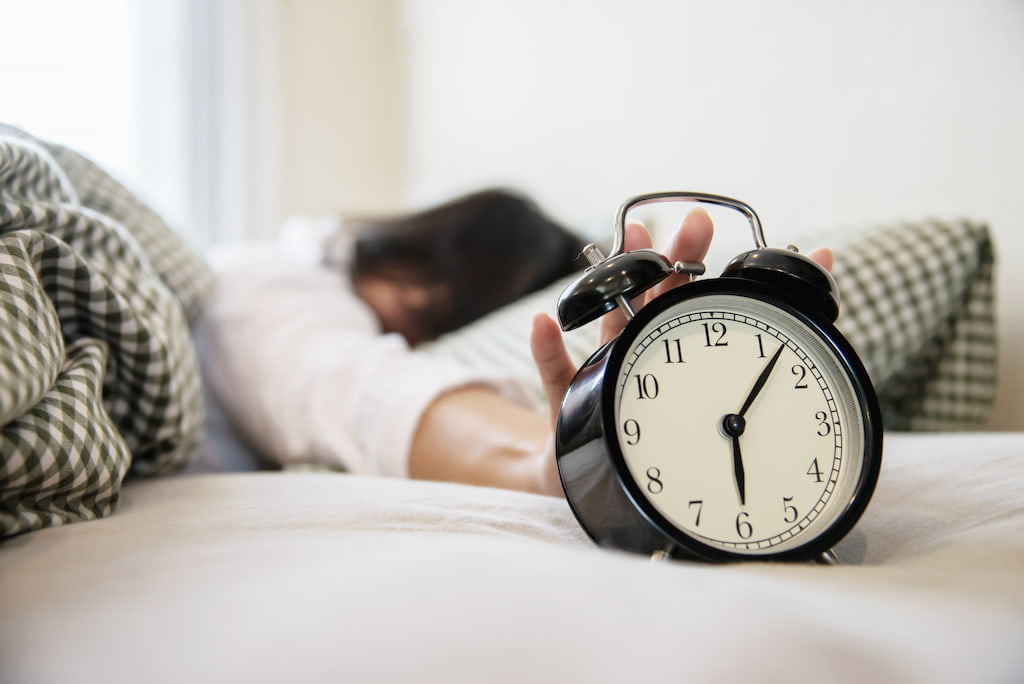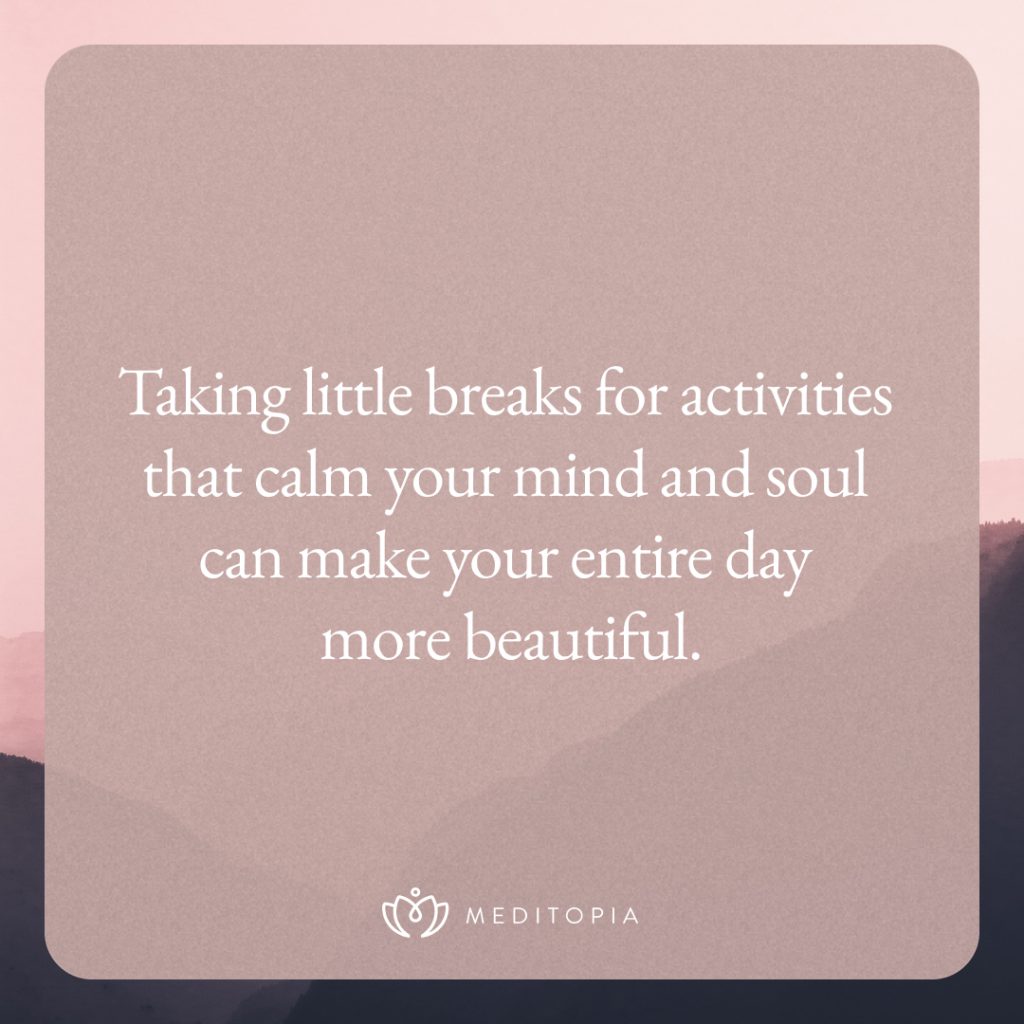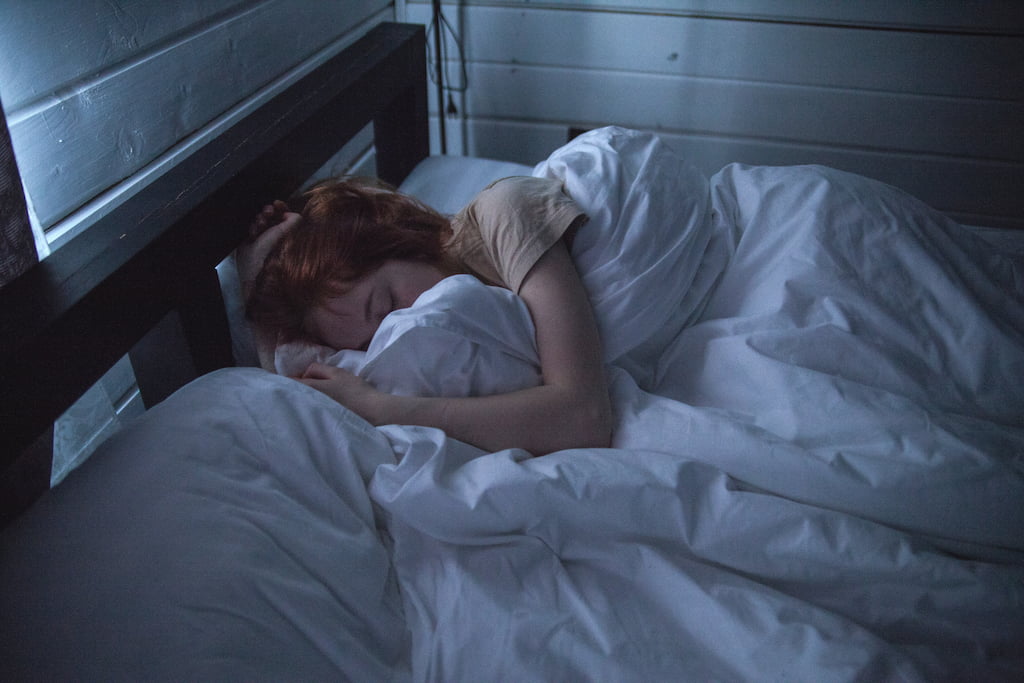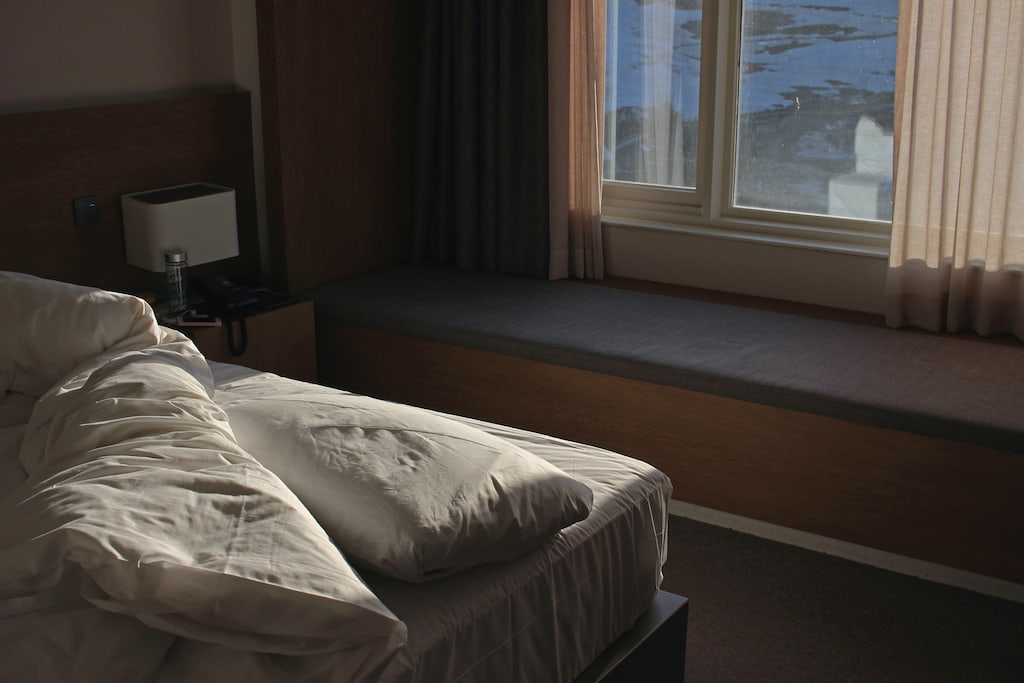Improve your quality of life: What can we do for a better night’s sleep?

Content
We often appreciate quality sleep even more on those nights when we can’t sleep at all or on those exhausting days when we’re struggling to get through on little sleep.

We all have different sleeping habits. There’s always someone around you who falls asleep as soon as their head hits the pillow, or that person might even be you. On the other hand, you may not be able to fall asleep without tossing and turning for minutes on end every night. It’s important to know your chronotype to see what time of day is best for you to sleep. As with everything else, you must first know yourself in order to get higher-quality sleep. After you’ve established your most ideal and sustainable routine, paying attention to your own experiences as well as scientific findings, it will be much easier to return to it, even if there are occasional setbacks.
“My sleep pattern is messed up.” Let’s try to change this phrase in our minds. When we fall out of something that has become routine, it doesn’t mean that the pattern is messed up. Once you accept these changes as a part of the pattern, it will be easier for you to maintain your established sleep routine for a long time. I bet it’s difficult when there’s the stress of not being able to fall asleep on top of the stress that’s keeping you awake in the first place.
Sometimes you’ll be stressed and tired, never wanting tomorrow to come and this feeling prevents you from drifting off to sleep. Sometimes you’ll tingle with excitement, wanting tomorrow to come as soon as possible and this anticipation stops you from falling asleep. Sometimes an activity may require you to change your bedtime. A night out with your friends, a flight, a job to get done, an engaging movie or a book… These things make up life itself. You don’t have to give up all these beauties for a good sleep. Let’s talk about a few things that can help you make good choices and repeat them as often as possible.
The ABCs of Sleep

It’s useful to know a few things about sleep without getting lost in the details.
Stages of Sleep
According to experts, our sleep consists of approximately one and a half hour cycles. Each cycle has four distinct phases with the first three known as NREM and the final phase as REM sleep. The REM or Rapid Eye Movement phase gets its name from the quick back and forth movement of the eyes that occurs during this phase. These eye movements do not appear in the NREM or Non-Rapid Eye Movement stages.
The first NREM phase is the transition to sleep, which lasts for a few minutes. In this stage, you can wake up easily from a sound or movement in your surroundings. In the second NREM phase, your body temperature begins to drop, muscles relax, and heart rate and breathing slow down. As the stages progress, sleep deepens and evolves to the third NREM stage where it becomes harder to wake up from sleep. In this third NREM stage, our body relaxes completely and physiological activities slow down. This phase is thought to be a time when the brain is renewed, replenished, and rested.
The REM phase is one in which physical activity slows down extremely while the brain continues to perform at near-awake activity levels. The brain often combines memories within the REM phase, critical for cognitive processing necessary for learning and creativity. Many people experience highly vivid dreams during this phase.
The uninterrupted occurrence of these phases at certain lengths is necessary for the brain to develop and perform well. Many studies show that not getting enough REM sleep has negative effects on both physical and mental health. Taking care to get better sleep will help improve your overall quality of life.
What is the circadian rhythm?
Biological rhythm is defined as the repetition of behaviors such as sleeping, eating, and other metabolic processes of living things within a certain temporal cycle. Circadian rhythm changes according to the position of the sun within a 24-hour cycle. The fact that we wake up when the sun rises and sleep when it’s dark is actually an indication that our sleep cycle coincides with the Earth’s day-night cycle. We prefer to sleep at night and be awake during the day because we are “diurnal” creatures. “Nocturnal” creatures such as owls, on the other hand, prefer to sleep during the day.
According to research, disruption of the parallelism between our own circadian cycle and the cycle of our current location is closely linked to obesity, heart disease, and psychological disorders. For this reason, it seems like adapting our sleep hours to the dark hours of the night and staying awake during the day is a good choice in terms of both our sleep quality and our general health.
What is sleeplessness?

When we’re having trouble sleeping, it’s not always an indicator of insomnia. Insomnia, which is a form of sleeplessness, is a medical term that manifests itself with symptoms such as not getting enough quality sleep and low energy levels. Insomnia and other sleep disorders are serious conditions with certain symptoms that require examination and diagnosis by medical professionals.
If you have any doubts about such conditions that have been going on for a while and affect your quality of life, I suggest you consult your doctor. We’ll be focusing on the effects of sleep deprivation without addressing these disorders.
Effects of sleeplessness
We experience many short and long-term effects of a lack of consistent and quality sleep. After a day of not getting enough sleep, we usually feel tired and down, maybe even more intolerant or irritable than normal. Our decision-making processes are affected by sleeplessness, as well. One of the examples of this is our food preferences. On such days following little to no sleep, we crave foods with plenty of carbohydrates, which we call “comfort food,” because the brain wants to get the energy it needs in a short time. Apart from this, basic cognitive skills such as memory, attention, and learning also decrease.
According to the results of many studies, there’s a positive relationship between REM sleep duration, which is vital for memory restructuring and retention, and our learning skills. Many studies support that in addition to its effects on cognitive skills such as decision-making, attention, and learning, sleep deprivation can also cause an increase in stress and depressive symptoms, and a decrease in metabolism.
How can we improve our sleep quality?
Sleep Hygiene
The steps we take toward better sleep can be defined as sleep hygiene. It’s possible to create a regular and quality sleep routine by focusing on things like transitioning to sleep through fixed bedtimes and creating a relaxing and clean space in which to fall asleep. A routine that you repeat consistently before sleep can be very valuable for sleep hygiene. Let’s think through some strategies to help you improve your bedtime habits.
Establish a Routine
While talking about the circadian rhythm, we mentioned how our body repeats its metabolic activities in similar cycles every day. Sleep is a crucial practice that we repeat every day, allocating most of our time to it. Make sure to go to bed and wake up at the same time every day for quality sleep. You can get yourself used to such patterns by setting a recurring alarm. When you go to sleep at the same time, your body and mind will begin to prepare themselves for sleep as the night approaches. Once you fix your sleeping hours, after a while, you’ll see that you’re falling asleep easily at the same hours and waking up well-rested in the morning.
Limit Blue Light Exposure
Certain light waves, known as blue light, block the darkness our system needs and prevent our circadian rhythm from continuing its normal course. In other words, the blue light hinders the working principle of the sleep hormone melatonin, which is released at night when darkness is at its peak, and thus our body experiences difficulty in entering a healthy sleep cycle. According to a study, exposure to blue light in the evening negatively affects sleep quality by slowing the brain activity in the first NREM sleep stage. Another study showed that the experimental group wearing glasses that filter blue light experienced an increase in sleep quality compared to the control group.
Based on this information, you try to limit blue light exposure during the day, especially before going to sleep, in order to improve your sleep quality. You may prefer to use your phone or computer screen in dark mode or at low brightness in the evening hours. If possible, try to stop using electronics for at least an hour before going to bed. When you put the technology aside after a certain time, you’ll block outside stimuli and be able to fall asleep more comfortably.
For a night of quality sleep, your activities during the day are as important as your pre-bed habits. Among them, nutrition and exercise are two critical factors.
Be Mindful of What You Consume
Being mindful of how we’re nourishing our body and meeting our needs throughout the day is also essential for sleep. Alcohol and caffeine are substances that can reduce sleep quality by affecting our sleep cycle. Even if you fall asleep comfortably when you consume alcohol, the quality of your sleep can still decrease and you’re likely to wake up tired the next day. Caffeine has a stimulating effect on us by increasing our mental activity and increasing our heart rate. The amount of caffeine you consume, especially in the afternoon, can disrupt your sleep.
In the evening, instead of coffee or black tea, you can turn to lighter and relaxing drinks such as chamomile tea or milk. It’s also important to note that going to sleep hungry can impact your quality of sleep as well, so be sure to listen to your body and nourish it accordingly.
Exercise
Moving your body every day, even just a bit, can have a huge impact on your sleep quality as well. Regular exercise increases total sleep time and REM sleep, thereby making it easier to fall asleep in a shorter amount of time. Moving your body can help you feel flexible and fresh, preventing you from feeling pain and tightness. You can go to sleep more easily with a relaxed body, so winding down before bed with stretching, body scans, or sleep meditations can be helpful to rid yourself of excess energy as well.
Don’t Force It
If you can’t sleep, don’t force yourself to. Instead of trying to sleep, tossing and turning, get out of bed. Instead, try reading for a bit or another calming activity. Going to bed only when you are tired and ready to sleep as well as getting out of bed as soon as you wake up will link the concepts of bed and sleep together in your mind. Thus, it will be much easier to sleep at night. When you get sleepy, you can go to bed and try to sleep. When you stay awake resisting sleep or fall asleep on the couch in front of the TV, your mind will have a hard time building this link.
Sleep Environment

Make sure your sleeping space is clean and tidy. A large number of items scattered around can involuntarily strain your eyes, making it difficult for you to relax. Create an organized environment with few items. Make sure the air inside is fresh by ventilating your bedroom regularly and keep your bed clean for a pleasant and quality sleep — who doesn’t love fresh sheets?
Make sure to wear comfortable and clean clothes while you sleep. You can choose flexible, loose clothes that don’t make you sweat and in which you can move comfortably. Taking a warm shower before going to bed is another way to help you doze off, relaxing your body before sleep. In addition, heavy curtains that provide dim and soft lighting and complete darkness at night can help you benefit more from sleep by providing the ideal darkness for you.
Benefits of Sleep Meditation
My last suggestion to improve your sleep quality is meditation. One of the many benefits of mindfulness meditation is improved sleep quality. You can improve your sleep quality by regularly dedicating time to mindfulness meditation. This practice can help you be present in the moment, allowing the thoughts running through your mind to pass by without judgment.
In this period of time that you devote to listening to yourself, you can take a better look at your needs and take the first step toward addressing any you’ve overlooked. When you satisfy these needs, your mind and body will relax and get closer to sleep little by little.
You can also relax your body gradually with body scanning and soothing breathing exercises. There are various sleep meditations you can listen to on those nights when you have trouble sleeping. You can cast yourself into the compassionate arms of sleep by choosing the content that interests you among guided meditations.
Good Sleep is Possible
By observing yourself, you can incorporate the suggestions that suit you best into your daily life. It’s very important to be patient with yourself throughout this process because you can only see the effect of these steps by repeating them regularly. Instead of giving up when you don’t see results right away, try making choices that will benefit you in the long run by reminding yourself that this is a process. There are days when we all have a hard time sleeping. While you carefully practice these tips every day, you may still have sleepless nights depending on what is going on in your life. This is perfectly normal. On such days, allow yourself to turn to the resources within you without judging or forcing yourself.


